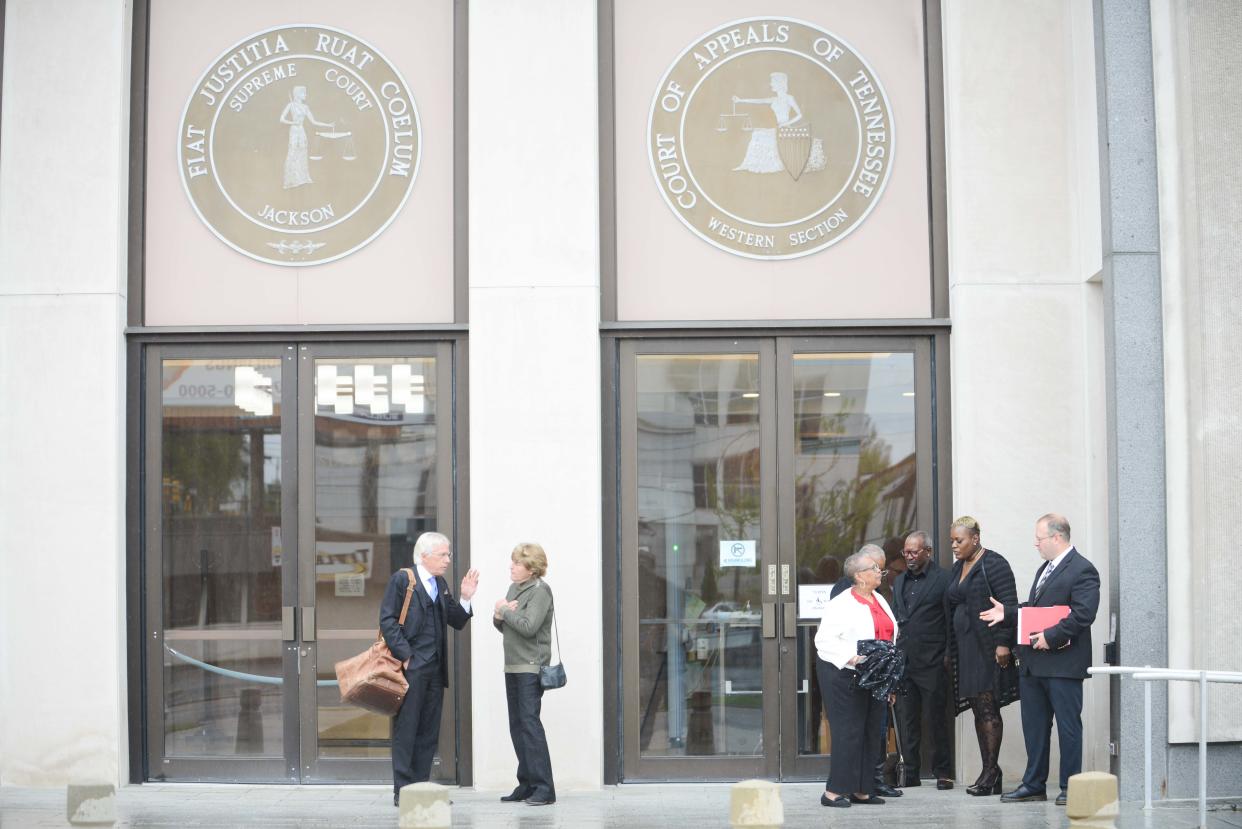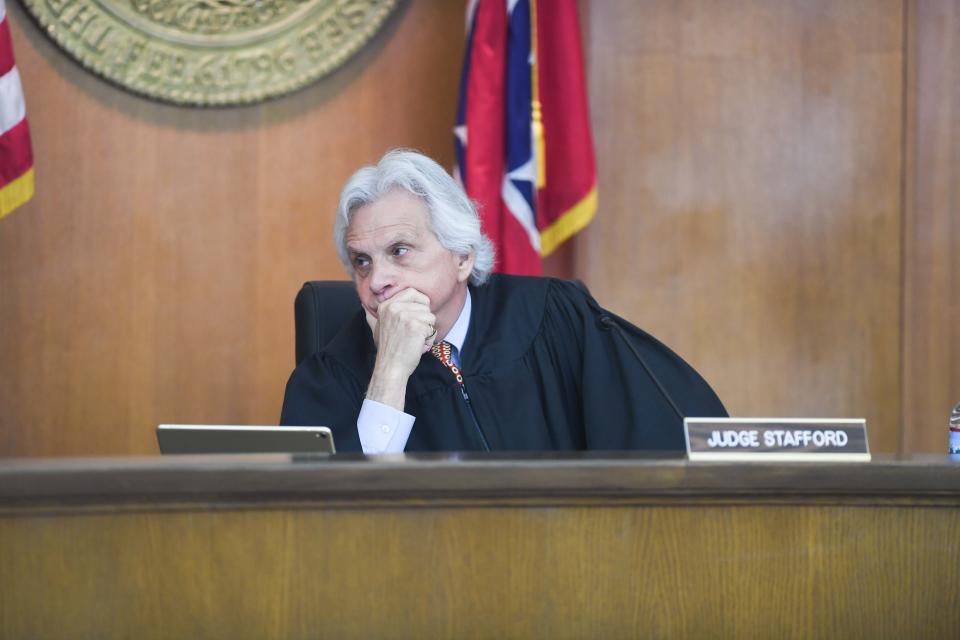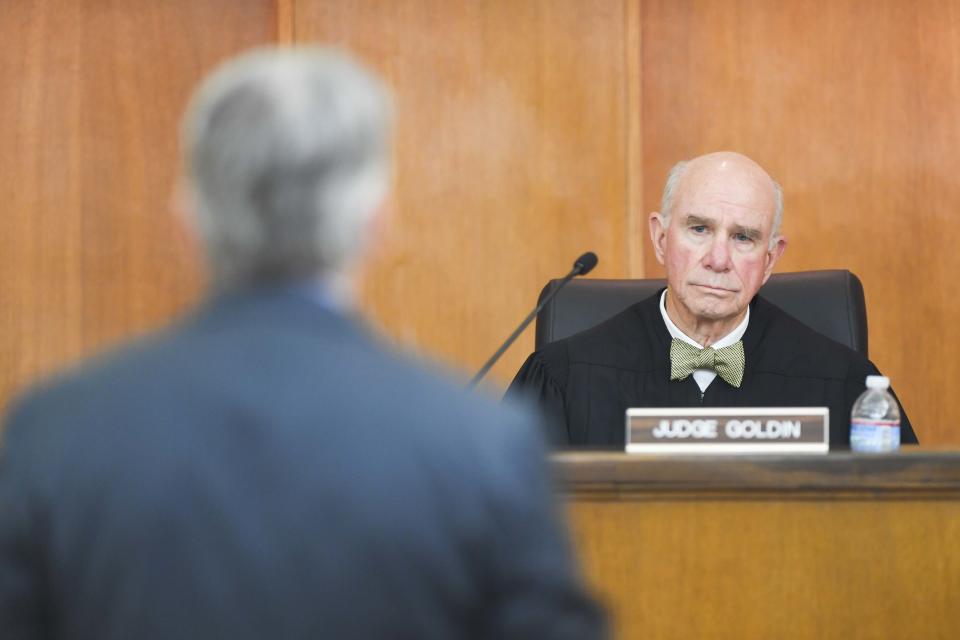'A scandal of epic proportions': Appeal heard in lawsuit over 12K untested Memphis rape kits

An oral argument for a pending class action lawsuit was presented before the Tennessee Court of Appeals in Jackson on Tuesday, following a ruling that the suit could be filed by all affected victims against the City of Memphis for not testing more than 12,000 rape kits.
Denying the city's demand to drop the lawsuit, Shelby County Circuit Court Judge Gina Higgins ruled in March 2023 that the suit seeking damages pertaining to thousands of untested Sexual Assault Kits (SAKs), dating as far back as the 1980s, could proceed as a class-action suit and the city would have to stand trial.
The City of Memphis appealed the ruling, bringing the lawsuit to the state appeals court in Jackson on Tuesday.
The appeal is divided between two related, yet separate cases, "Johnson et. al. v. The City of Memphis" and "Janet Doe v. The City of Memphis et. al."
More: City of Memphis to appeal ruling in lawsuit involving 12,000 untested rape kits
More: Shelby County judge rules 'rape kit lawsuit' can move forward as class-action suit
Johnson case sheds light on slew of unsolved cases
In the summer of 2013, the City of Memphis released a statement in response to findings of more than 12,000 rape kits that went untested between 1985 and 2012.
Rachel Johnson, Madison Graves, and Meaghan Ybos filed a lawsuit in 2014 against the City of Memphis and other entities, noting that they "suffered severe emotional stress," following the city's statement and with respect to their incidents of sexual assault.

The plaintiffs asked for $1.5 million, with a maximum cap of $750,000 to be paid by Shelby County, which was formerly a defendant, and the City of Memphis.
In discovery, it was revealed that the women knew their kits had been tested shortly after their assaults, and that the perpetrator, who assaulted all three of them, was apprehended and convicted.
The three cases were ultimately dismissed.

Attorney Jon Lakey, representing the city, argued that the class-action ruling should be overturned on the basis that the class needs to be defined before being certified.
Noting that the existing class is broad and that the complexities of the suit warrant subclasses, he said the trial court "failed to engage in the rigorous analysis that it is required to undertake before certifying a class."
Janet Doe v. The City of Memphis
Because the Johnson et. al. case was dismissed, Smith emphasized the focus on the currently standing case of Janet Doe.
Doe was sexually assaulted in 1997 and submitted to DNA collection for a SAK.
Her kit was not tested until 2015.

Doe's case seeks $10 million in damages with no maximum cap per government entity, unlike Johnson et. al.
Lakey says that because the Combined DNA Index System (CODIS) had not been established by law enforcement until 2002, there was no existing suspect to compare the DNA collected in Doe's case to, making the operational facts of the case different from Johnson et. al., whose assaults occurred post-CODIS.

CODIS is a national database storing DNA profiles of convicted offenders, missing persons, and unsolved crime scene evidence.
Gary Smith, representing Doe in appellee counsel, argued that this was a "horrendously wrong" point in Lakey's statement. Referencing an affidavit from a retired Tennessee Bureau of Investigation agent, Smith says SAKs could be submitted to TBI for testing pre-CODIS.
He maintained that even after 2002, the backlog was allowed to continue to grow, and hence why, even post-CODIS, Doe's kit had not been tested until 2015.
"In effect, what the city argues here under some metaphorical, theoretical pretense is that they can not be held accountable for a scandal of epic proportions," Smith said.
The decision to uphold or deny the appeal lies in the hands of Judges Andy Bennett, Arnold Goldin, and J. Steven Stafford.
Sarah Best is a reporter for The Jackson Sun.
This article originally appeared on Jackson Sun: Appeal hearing held for class-action status of Memphis rape kit lawsuit

